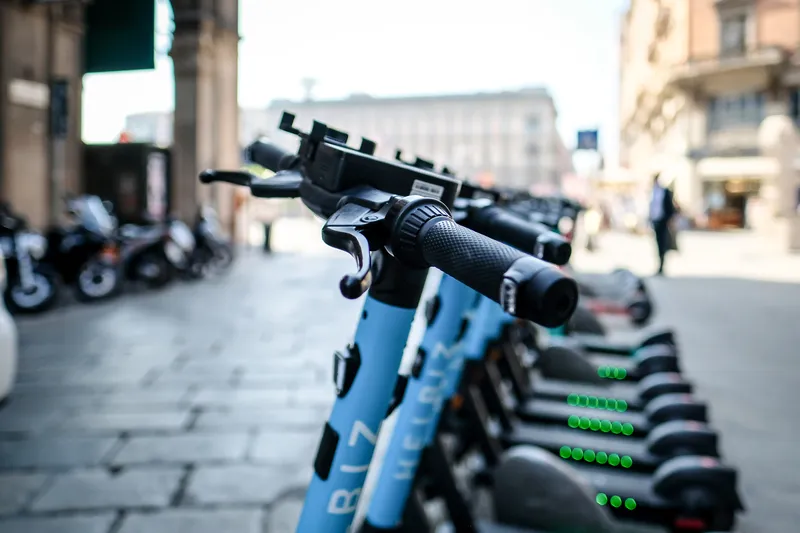Nearly 50% of all car trips in the most congested US metropolitan areas are less than three miles and could be replaced by micromobility services, says
The company analysed data points from connected devices to rank the top US, UK and German cities where micromobility services (shared bikes, electric bikes and electric scooters) could have the most significant impact on replacing vehicle trips.
Findings from the National Association of City Transportation Officials estimated that scooters are frequently used for trips between half a mile and a mile, whereas bike distances are typically between one mile and three miles.
Inrix revealed Honolulu (Hawaii) could replace 55% of short trips with micromobility services. It is followed by 52% of vehicle trips in New Orleans (Louisiana) and 51% of those in the cities of Nashville (Tennessee), Chicago (Illinois) and Charlotte (North Carolina).
In the UK, the city of Manchester could replace 69% of vehicle trips that are three miles or less with micromobility services. It is followed by Birmingham (69%), Glasgow and London (both 66%) and Sheffield (64%).
Trevor Reed, transportation analyst at Inrix, says “legislation and public education” does not do enough to encourage micromobility.
He insists that the UK government should review options to legalise e-scooters and assess the current opportunities to increase road safety for all users.
“Simultaneously, it’s essential the wide-ranging benefits of micromobility and the cost of vandalism are clearly communicated to the public to ensure the technology is used sustainably,” he continues. “We urge authorities to use more data-based decision making to ensure the smart deployment of these services.”
Figures for Germany revealed Munich as the city with the most potential for micromobility services, with potential for replacing 60% of short-distance vehicle trips. It is followed by Hamburg (59%), Berlin (56%), Frankfurt (55%) and Cologne (51%).
Going forward, Inrix says the success of these offerings will depend on cities having a clear understanding of where micromobility is best positioned to offset vehicle travel as well as having the tools to engage with and manage these services. Cities can utilise trip data and insights to provide a “foundational view” of how people currently move through a city's road network, the company adds.
According to Inrix, cities must integrate private micromobility offerings and address challenges of incorporating app-based services.
Inrix: micromobility could replace half of US metro car trips
Nearly 50% of all car trips in the most congested US metropolitan areas are less than three miles and could be replaced by micromobility services, says Inrix.
The company analysed data points from connected devices to rank the top US, UK and German cities where micromobility services (shared bikes, electric bikes and electric scooters) could have the most significant impact on replacing vehicle trips.
Findings from the National Association of City Transportation Officials estimated that scooters are
September 16, 2019
Read time: 2 mins
Related Content












